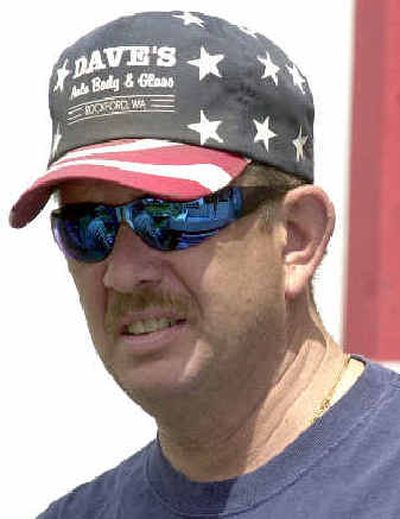Judge to rule in arson case

A federal judge is scheduled to rule today whether to suppress the confession of a firefighter accused of starting a $2.6 million seed company warehouse fire last summer in the southeastern Spokane County town of Fairfield.
The confession of Kenneth Southwell, repeated at least four times before federal agents, should be suppressed and not allowed as prosecution evidence at his trial, now set for July 26, Assistant Federal Defender Kim Deater argued at a hearing Wednesday.
If the confession is suppressed, the prosecution is expected to seek another delay of Southwell’s trial while an appeal is made.
In confessing to starting the warehouse fire, Southwell also admitted starting four earlier house fires with road flares he stole from his fire department. Federal investigators have described him in court as a “serial arsonist.”
The 46-year-old firefighter has been in jail since his confession and arrest last Sept. 9, eight days after a multi-alarm fire destroyed Heart Seed Co.
Deater said his confession should be tossed because of a June ruling from the U.S. Supreme Court and because Southwell didn’t voluntarily make the statement during a “custodial” interview by agents of the Bureau of Alcohol, Tobacco, Firearms and Explosives.
The Supreme Court ruled that a voluntary confession can be suppressed under certain circumstances if that confession came before a suspect has received his Miranda warning against self-incrimination. Confessions may be considered involuntary and tainted without the Miranda safeguards, the high court ruled.
Because of medical and mental difficulties, Southwell was susceptible to being encouraged to please the ATF agent, Deater argued before U.S. District Court Judge Fred Van Sickle.
Deater called Spokane forensic psychologist Mark Mays, who testified that a battery of psychological tests convinced him Southwell was “prone to acquiesce to people in positions of authority,” suggesting his confession wasn’t completely voluntary.
But Assistant U.S. Attorney Tom Rice said the formal confession was properly obtained and tape-recorded after Southwell confessed, then was given his Miranda warnings.
The firefighter and ambulance director for Spokane County Fire District 2 was summoned to the ATF office in North Spokane to answer questions about how firetrucks were parked at the scene of the arson blaze, where Southwell was the “incident commander.”
After those questions, which ATF agents described as a ruse, they told Southwell they considered him a suspect in starting the fire he later helped battle. He initially denied any involvement but then confessed and asked if he could step outside for a cigarette.
Agents gave him that break, before returning to the interview room and giving Southwell the Miranda warning. He didn’t ask for a lawyer, agents testified, and repeated the confession for the agents’ tape recorder.
“It was not a coercive or confrontational interview leading to the confession,” Rice argued to the court.
Before being booked into jail, Southwell asked agents to drive him to his wife and friends homes so he “could break the news to them.” In those conversations, he twice repeated his admission to starting the arson fire in front of ATF agents.
After listening to more than two hours of testimony, the judge said he would need some time before deciding whether the confession should be suppressed or allowed as evidence against Southwell.
Van Sickle’s staff said the judge was expected to render his decision this afternoon.
Southwell is charged federally with malicious use of fire to damage property involved in interstate commerce. If convicted, he faces a minimum of five years to a maximum of 20 years in prison.
If the case goes to trial, the defense is expected to claim Southwell suffers from a severe sleep disorder and a mental illness known as a “dissociative disorder.”
With that basis from expert witnesses, Deater is expected to argue that Southwell suffered from a diminished mental capacity and lacked the specific intent needed to prove he should be found guilty of the crime.
At Wednesday’s hearing, Rice called Tim Fredrickson, a psychologist at Eastern State Hospital, who said he also administered tests to Southwell and found no evidence of memory impairment. Fredrickson agreed with Mays who concluded Southwell’s intelligence level was in the “low average range,” but that he isn’t mentally retarded.
The prosecutor asked Fredrickson if he concluded Southwell had the psychological makeup to end the interview with the ATF agents and demand an attorney.
“I think he had that capacity,” Fredrickson testified. “I didn’t see anything that would impair that.”
Deater then asked Fredrickson if he could conclude Southwell’s confession to ATF agents was completely voluntary.
“I don’t have enough information to give an accurate opinion,” the state psychologist responded.